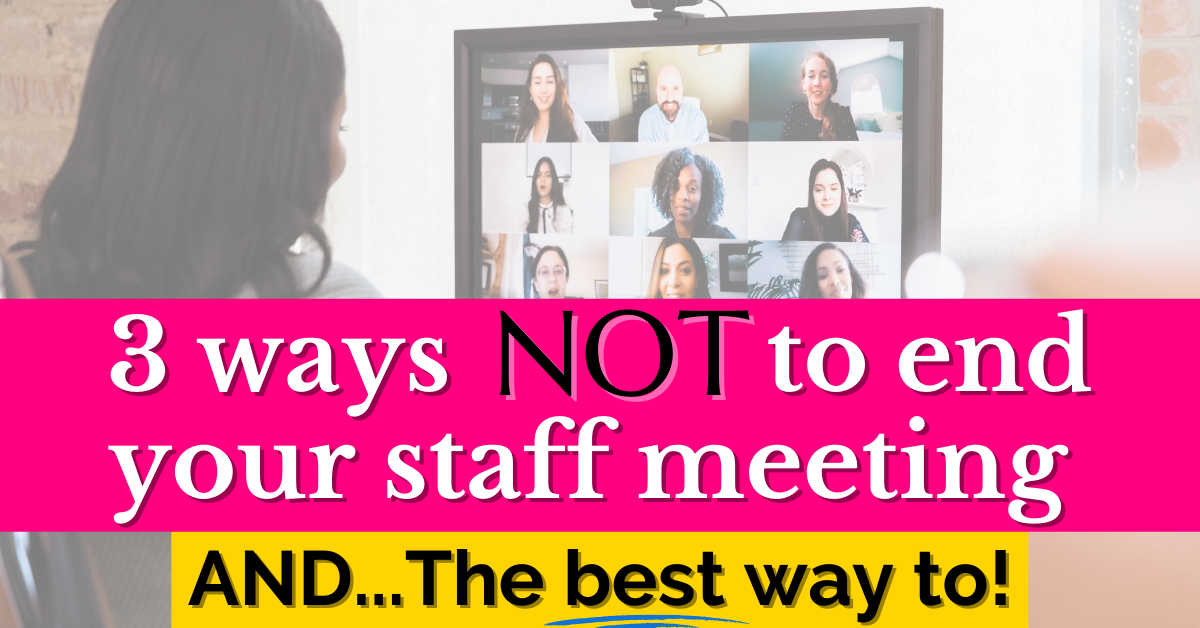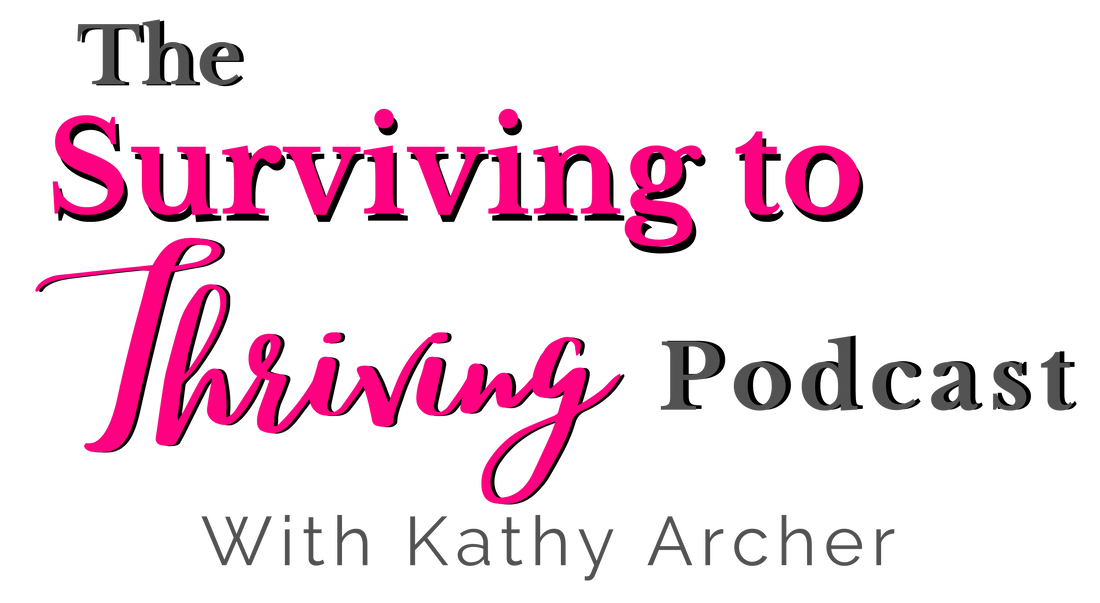|
Do you struggle with anxiety?
I do. Not diagnosed anxiety but every day, I struggle with anxious thoughts. And I often feel anxious. We probably all do! Anxious thoughts like worrying, fretting or wondering if things will go the way we want are "normal." However, when these thoughts take over, we may feel nervous, jittery or uptight and struggle to do what we need to do. Sound familiar? Karen struggled with anxious thoughts too! When Karen came to me for coaching, she struggled with overthinking pretty much everything in her day. Her mind would swirl with anxious thoughts:
Anxious thoughts turn to physical problems Sadly, these anxious thoughts were manifesting physically in Karen's body! You've probably felt that happen to you too — tension in your shoulders, headaches, tightening in your chest etc. We get ourselves wound up tight as a top! You're in a painful cycle Anxious thoughts make us pull in physically. Feeling strain and stress in your body leaves your mind jittery and has you switching from email to text to the document you were working on, back to email again. Then you are heading down the hall (or into chat) to check with someone about something. And, often that "something" could have waited! This is not helping your productivity The problem with this muddled mess is that you have a lot to do! So going round and round in circles is not helping you. When Karen realized her anxious thoughts were causing her to feel less productive and consequently less confident and capable, she realized it was time to get control of her thoughts. How do I do that? She asked! I suggested Karen use the magic pill that I use When my thoughts start to pull me in multiple directions at once, make me feel scattered, or create doubt, fear and anxiety in me, I tell myself back away from the computer! Then, I sit down and take a few deep breaths. That chair you've seen behind me in videos is the chair I use. When I am deep breathing, I activate my parasympathetic nervous system and get grounded. Karen finds this moment extremely helpful Karen put the technique to the test and told me that she could feel her body relax when taking several deep breaths. Karen finds this mindfulness activity activating her parasympathetic nervous system. As a result, she is so happy she can regain control of her thoughts and thus her focus. Why this works The opposite of your parasympathetic nervous system is your sympathetic nervous system, better known as fight, flight or freeze mode. The way I think of this is that your sympathetic nervous system has sympathy for our "tough situations." Our body thinks it will help us by
Why it makes you a better leader Unfortunately, those sympathetic responses are not so helpful in leadership. Instead, we need to calm our bodies down by taking deep breaths, thus triggering our parasympathetic nervous system. This calmer state allows us to activate our critical thinking abilities, think strategically and have perspective. It also arouses empathy, compassion and caring, all essential in developing strong working relationships. I think of this like an Archer ready to pull her arrow back. If she's shaking, she's not going to hit the target. But if she can activate the parasympathetic nervous system, she can become laser-focused on what matters most, which is what you need to do to achieve your mission and have a strong team culture to do just that. How to do this Although we know that taking "3 deep breathes" helps, you may not be doing it in the most effective way to activate the parasympathetic nervous system, thus making you a better and calmer leader. To learn how to breathe in a way that activates the system, check out the Webinar Breath Magic: Breathe your way to being a calm, composed and in control leader! I know this sounds like a soft skill. I suppose it is. Yet, this soft skill will give you the capacity to have the courage to do the hard stuff! Try it, and let me know how it works!
0 Comments
Staff meetings can be draining. They can be for you and everyone involved. By the end of the staff meeting, many people feel depleted and just ready for it to be over. Ending a meeting with a low vibe is not a good thing! How not to end a staff meeting While ending a meeting on time is important, let me first describe three ways not to finish a staff meeting
Tips to make meetings better You can do many things to have staff meetings be more efficient and energizing instead of energy-draining.
Getting the work done At some point, you need to get some business done. Your team is likely working on projects. Changes are happening. You are also dealing with the next steps of decisions that have been made. Moving forward is critical. 3 things to end the meeting with
To ensure things are moving along, always and your meetings with three summarizing points written down: Who said they would do what by when? WHO WHAT WHEN Then make sure that summary comes back to the next meeting for accountability's sake to see where things stand. That list should be a review item of the next meeting. What did get done, what didn't and what still needs dealing with? Having that check-in will make your meetings more productive. TIP: If it feels like everything falls on you, then something is not right. You are the leader but not the almighty doer. Delegating, building collaboration and developing upcoming leaders are things you need to be working on to cultivate a strong team, a thriving culture and for your own sanity!
The 1 BIG thing to do at the end of the meeting But there's one more thing you need to do before you end the meeting. How are you and the meeting will dictate what people say about how the meeting went. It's what they leave with that they remember most. The FINAL thing you need to end the meeting with is specific appreciation. Don't be general! I am not talking about general comments like these: Thanks, everyone, for doing your part! I know we're going through tough times.
I appreciate everyone doing their best
Belinda, good job on the proposal last week.
The key to being specific is to be specific! Try comments that are more specific like these ones I appreciate working together to ensure we saw as many of our clients as possible this past week. We were up 10%
Jessica, thank you for helping me pull the data together for the application last week.
Denver, I can see that you are working to create fun experiences for your clients, like visiting the corn maze. It's great to see you being so creative and including your coworkers and their clients too.
Why is this ending important? There are two reasons why ending staff meetings with appreciation is important. 1) Appreciation and recognition create engagement. Gallup has identified that when we receive regular recognition, we are more engaged at work. And by regular, they are talking once a week!!!! 2) It creates good mojo When you feel appreciated, you get a hit of dopamine which makes you feel good! That lifts your mood, your spirits and your energy. Leaving a meeting with a good vibe brings energy and positivity to the rest of your day, your team's day and thus to those around you. That's a good thing! Staff meetings CAN be reenergizing. The way to do that is to be a bit more strategic about your energy, especially at the end of the meeting. |

Available on Amazon
Archives
May 2024
|
|
Leadership TRAINING for Nonprofit Leaders
Become a confident and competent nonprofit Leader: Join The Training Library membership Executive and Leadership COACHING Leadership Coaching for Nonprofit Executives, Leaders and ManagerCoaching |
PODCAST for Nonprofit Leaders
The Surviving to Thriving podcast: Strategies, systems and support to lead your nonprofit with confidence FREE RESOURCES to Grow your Leadership Skills Free Leadership Training Resources, Worksheets and Templates |
Become a CONFIDENT LEADER
|





 RSS Feed
RSS Feed
